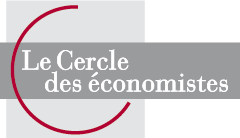Precariousness, poverty, what initiatives?
From Pierre Jacquet, member of Cercle des économistes
After recalling some facts on the recent evolution of the situation (worsening of poverty and precariousness almost everywhere in the world due to the pandemic; but these problems already existed in an acute way, as much in developed countries as in developing countries), the round table could focus on:
- Underlying reasons for these developments (not only those recent or related to the pandemic) and risks ahead.
- Current and future actions and policies (to support and strengthen efforts on the ground).
- Models of society we can aspire to (which “social justice”, which role for assistance, for insurance…)
As we are an economic meeting, a useful starting point could be what the economic analysis brings, at least to show that it is obviously very insufficient. Economic approaches suggest three types of comments:
- They (generally) emphasize growth and the role of technical progress. This approach is based on the idea of “trickle down” (“a rising tide lifts all boats”, according to a speech by John F. Kennedy in 1963; or the observation by Robert Lucas in 2004 that “the potential for improving the lives of the poorest through the various instruments of redistribution is nothing compared to the seemingly infinite potential for increasing production”). But this “trickle-down” is at best partial, and the idea of an “apparently infinite” potential for growth, at least as it is currently defined, is flawed…
- They still rely heavily on the consideration of GDP, while recognizing its limits. Besides sheer inadequacy vis-à-vis climate environmental challenges, this raises two problems: First, monetary income is a very poor measure of poverty or precariousness; Also, GDP represents the “size” of an economy and says nothing about income distribution. Hence the growing interest in the work of Thomas Piketty on inequality, in France and in the rest of the world. A debate on poverty and precariousness is inseparable from the question of inequality.
- Finally, in its normative dimensions, economic analysis recommends solutions (“what to do?”). But it does not dwell on the practical conditions forthese actions to take place: how to implement them – in specific contexts -, how to ensure that they achieve the expected impacts? How to discuss these impacts or their absence? Certainly, progress has been made in linking actions and impacts, notably with efforts to measure it. However, economics is often less equipped than sociology, anthropology and political science to address questions of the conditions and effectiveness of action.
Composition of this roundtable is therefore very appropriate: a renowned economist, who has acquired considerable field experience in a country (India) where poverty and precariousness are de facto ways of life; and leaders of structures that are engaged on the field and act directly to correct these extreme situations. The objective of these discussions is to draw orientations for economic and social reflection, but also to reflect on the conditions for action, individual and local, but also political and social.







